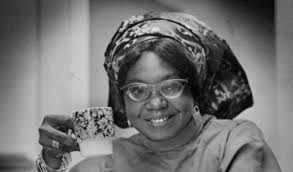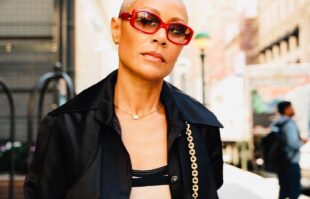Florence Nwanzuruahu Nkiru Nwapa (13 January 1931 – 16 October 1993) was a Nigerian authorTop 10 Great Authors In Nigeria’s History and publisher, who has been hailed as the founder of contemporary African literature. She was the first African woman novelist to have a book published in the English language in Britain, setting the stage for a generation of African women writers. With the publication of her debut book, Efuru, by Heinemann Educational Books in 1966, she attained global recognition. She never considered herself a feminist, although she is most known for reenacting Igbo women’s lives and traditions from an Igbo woman’s viewpoint.
Contents

Flora Nwapa Biography
| Full Name | Florence Nwanzuruahu Nkiru Nwapa |
|---|---|
| Pen Name | Flora Nwapa |
| Date of Birth | 13 January 1931 |
| Died | 16 October 1993 |
| Nationality | Nigerian |
| Place of Birth | Oguta, South East, Nigeria |
| State of Origin | Enugu State, Nigeria |
| Occupation(s) | Educationist, Author and Publisher. |
| Genrea | Novels; short stories; poems; plays |
| Spouse | Chief Gogo Nwakuche |
| Net Worth | Unavailable |
| Social Media Handles | Unavailable |
Early Life and Education
Nwapa was born on January 13, 1931, in Oguta, in south-Eastern Nigeria, the eldest of the six children of Mr Christopher Ijeoma (who was an agent with the United Africa Company) and Martha Nwapa, a drama teacher of repute.
Flora Nwapa had her primary education in Oguta, Enugu State, before proceeding to Elelenwa Secondary School in Port Harcourt and CMS Girls School in Lagos, which later merged with Kudeti Girls School in Ibadan to become St Anne’s School Ibadan. She began attending college when she was 22 years old, and in 1957, when she was 26 years old, she graduated from University College, Ibadan, with a B.A. She subsequently travelled to Scotland, where in 1958 she graduated from Edinburgh University with a diploma in education.
Career
Teaching and Public Service
Nwapa joined the Ministry of Education in Calabar as an Education Officer after arriving in Nigeria and worked there until 1959. She then accepted a position as a teacher at Queen’s School in Enugu, where she worked from 1959 to 1962, instructing English and geography. She continues to hold a number of posts in the government and the educational sectors, such as Assistant Registrar at the University of Lagos (1962–67). She accepted a cabinet position following the 1967–1970 civil war in Nigeria as the Minister of Health and Social Welfare in East Central State (1970–1971), and later as the Minister of Lands, Survey, and Urban Development (1971–74). She was a guest lecturer at the Alvan Ikoku Federal College of Education in Owerri, Nigeria. She was chosen to teach creative writing as a visiting lecturer at the University of Maiduguri in 1989.
Writing and Publishing
Nwapa’s debut book, Efuru, was released in 1966 at the age of 30 and is regarded as a groundbreaking work as an English-language novel by an African woman author. In 1962, she sent the transcript to the well-known Nigerian author Chinua Achebe, who responded with a letter that was very encouraging and even offered money for the postage to send the manuscript to the English publisher Heinemann.
The novels Idu (1970), Never Again (1975), One is Enough (1981), and Women are Different by Nwapa came out after Efuru (1986). Along with the poetry collection Cassava Song and Rice Song (1986)., she also wrote two collections of short tales, This is Lagos (1971) and Wives at War (1980). She has written numerous children’s novels as well.
She established Tana Press in 1974, followed by the Flora Nwapa Company in 1977, publishing both her own writing for adults and children as well as that of other authors. She stated that one of her objectives was to “inform and educate women all over the world, especially feminists (both with capital F and small f) about the role of women in Nigeria, their economic independence, relationship with their husbands and children, their traditional beliefs, and their status in the community as a whole.” Tana was characterised as “the first press that was operated by a woman with a sizable female audience.” A project that was far ahead of its time at a time when no one thought that African women made up a readership or a market for books. “
Nwapa initially had little interest in feminism since she believed it was prejudiced against men during the beginning of her literary career because of how it was perceived and depicted, but she gradually came to terms with it. Her battle with feminism, however, is illustrative of the current discussions about the movement in Africa and the rest of the world. From Présence Africaine and Black Orpheus in the 1960s and 1970s through Daughters of Africa in 1992, her work was found worthy of being anthologized in these journals.
Later Life Sojourn
Throughout her life, Nwapa worked as an educator, teaching at institutions around the world, including New York University, Trinity College, the University of Minnesota, the University of Michigan, and the University of Ilorin. In an interview with Contemporary Authors, she stated, “I’ve been writing for almost three decades.” My focus has been on urban and rural women’s struggles for survival in a world dominated by men that is rapidly changing. “
She championed women in Africa’s society and published works of African literature. When she established Tana Press in Nigeria in 1970, she was one of the pioneering African female publishers. Following the Biafran War, Nwapa worked for the government, particularly with orphans and refugees who had been displaced by the conflict.
Personal Life
Flora Nwapa was married to Ejine Nzeribe (from a previous relationship) and had three children, some of whom are Uzoma Gogo Nwakuche and Amede Nzeribe. She went on to marry Chief Gogo Nwakuche after leaving her previous relationship.
According to the documentary The House of Nwapa by Onyeka Nwelue, her uncle, A. C. Nwapa, served as Nigeria’s first Minister of Commerce and Industries. At the age of 62, Flora Nwapa passed away from pneumonia on October 16, 1993, in a hospital in Enugu, Nigeria. The Lake Goddess, her last book, was released after her death.
Legacy
The House of Nwapa, a documentary on Flora Nwapa produced by Onyeka Nwelue, debuted in August 2016. Nwapa’s birthday was celebrated on January 13, 2017, with a Google Doodle.
After his mother passed away in 1993, Uzoma Gogo Nwakuche, Flora Nwapa’s son, established the Flora Nwapa Foundation, a non-profit organisation in California, in 1994. In 2016, the Flora Nwapa Foundation commemorated Efuru@50.
Bibliography
Novels
- Efuru
- Idu
- Never Again
- One Is Enough
- Women are Different
- The Lake Goddess
Short Stories/Poems
- This Is Lagos and Other Stories
- Wives at War and Other Stories
- Cassava Song and Rice Song
Children’s Books
- Emeka, Driver’s Guard
- Mammywater
- The Adventures of Deke
- The Miracle Kittens
- Journey to Space
Awards and Honours
- The Flora Nwapa Prize for Feminist Writing is an annual award for the best-unpublished work of fiction or non-fiction written in English by any writer with a feminist theme.
- In 1983, the Nigerian government bestowed on her the OON (Officer of the Order of Niger), one of the country’s highest honours.
- She received the University of Ife (now Obafemi Awolowo University) Merit Award for Authorship and Publishing at the 1985 Ife Book Fair.
- In 1989, she was appointed Visiting Professor of Creative Writing at the University of Maiduguri in Borno State, a position she held until her death.
- She was a member of the PEN International committee in 1991
- The Commonwealth Writers’ Prizes committee in 1992.
- She was awarded the highest chieftaincy title (Ogbuefi) by her hometown, an honour that is usually reserved for men of achievement.
Net Worth
Her net worth is unavailable
Social Media Handles
No social media page is associated with her.





